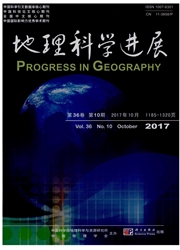

 中文摘要:
中文摘要:
单位大院是理解计划经济时期中国城市空间的重要对象。本文运用政治经济学的视角对单位大院进行了新的解读,发现单位大院是由产品生产空间和劳动力再生产空间组成的、具有轴线和中心-边缘结构的封闭性院落空间。空间的生产活动由产品生产循环及其派生出的单位职工日常活动循环、单位职工生命历程、职工子女日常活动循环和职工子女成长历程构成,不同活动之间相互交织并实现了社会关系的生产与再生产。从生成机理来说,单位大院是计划经济时期以项目为依托进行生产组织、生活服务和社会管理模式的空间化,是现代化建设目标、传统文化及革命经验继承和资源有限等现实条件约束的结果。
 英文摘要:
英文摘要:
Danwei compound is a suitable perspective to understand the spatial organization in urban China during the period of planned economy. Based on analysis from political economic per spective, this paper finds Danwei compound is composed of product production space and labor re production space, having spatial elements of axis, coreperiphery structure and traditional com pound. The production activities include product production cycle and those related cycles of daily life cycle of workers, workers' life process, daily life cycle of workers' children and their grown up process. The reproduction of social relationship is completed in those interweaved cycles. As for for mation mechanism, Danwei compound is the spatialization of projectbased model of production or ganization, life service and social governance, a result of constraints from socialist modernization aim, dependence of traditional culture and revolutionary experience and realistic conditions.
 同期刊论文项目
同期刊论文项目
 同项目期刊论文
同项目期刊论文
 Chun Zhang, Yanwei Chai. Un-gated and Opened-up Work Unit Communities in Post-socialist Urban China:
Chun Zhang, Yanwei Chai. Un-gated and Opened-up Work Unit Communities in Post-socialist Urban China: 期刊信息
期刊信息
